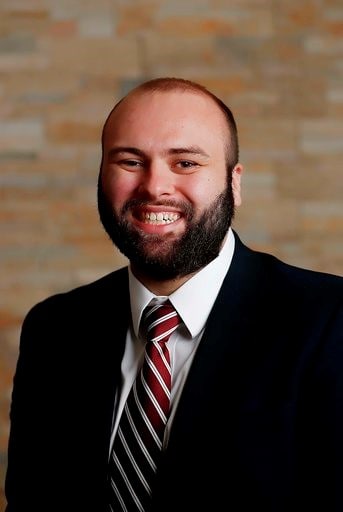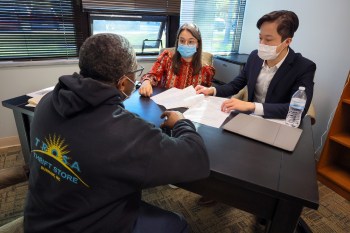White House Official joins celebration for community health workers
Raleigh, N.C. – Thursday, March 23rd marked 13 years since the passing of the Affordable Care Act. The landmark legislation has survived numerous challenges and attempts to repeal it. This past Open Enrollment Period, over 800,000 North Carolinians enrolled in a private individual health plan through the Affordable Care Act. This breaks the previous record by over 120,000 enrollees.
The NC Navigator Consortium celebrated this record-breaking achievement by hosting a luncheon at Martin Street Baptist Church in Raleigh. The luncheon honored the achievements of community health organizations and non-profits across the state. The NC Navigator Consortium, a project of Legal Aid of NC, is a non-profit organization with the goal of connecting as many North Carolinians as possible to health coverage. The 60 partner organizations in attendance have assisted the NC Navigator Consortium’s outreach and enrollment efforts over the past 13 years. Eastern Regional Director, Angela Cameron, organized the event.
The ceremony also included speeches from high-profile guests. White House Appointed official, Antrell Tyson from the U.S. Department of Health and Human Services offered his congratulations to the Navigators and community organizers present. “The numbers speak for themselves,” said Tyson, “”it reflects the hard work and dedication you all committed to this aligned cause.” He transmitted a celebratory message on behalf of the Biden-Harris Administration and lauded the administration’s American Rescue Plan and Inflation Reduction Act for lowering the cost of premiums.
Alicia Davis, the Director of Legislative Affairs was able to deliver good news from Governor Cooper’s office. “Just hours ago,” Davis beamed “House Bill 76 was approved.” This announcement was met by cheers from the community health workers. The “Access to Health Care Options” bill expands Medicaid, effectively eliminating the “Medicaid Gap” and broadening access to healthcare for the populations these organizations serve. There could be no better news for groups dedicated to eliminating barriers to coverage.
Alexander DeAbreu from the Centers for Medicare and Medicaid Services gave a presentation on the fast-approaching “Medicaid Unwinding”. At the onset of the pandemic, Congress passed the Families First Coronavirus Response Act (FFCRA), requiring Medicaid programs to not revoke anyone’s access to coverage in the middle of a health crisis. The protections required by the FFCRA expire this year, removing hundreds of thousands of people from Medicaid.
The CMS Outreach Specialist emphasized the importance of connecting to those affected and preventing them from being blindsided by this process. Navigators are preparing for the influx of people who may need access to Marketplace health plans.
The event concluded with an award ceremony for longtime partners who have gone above and beyond. Cameron and NC Navigator Consortium Director, Mark Van Arnam relayed anecdotes of how these longtime allies hosted events, made referrals and assisted in healthcare outreach over the past 13 years. The recipients of the Affordable Care Act Champion Awards were Urban Ministries of Wake County, Advance Community Health, Alliance Medical Ministry, Dress for Success, and Martin Street Baptist Church, the host site for the luncheon.
The NC Navigator Consortium is the only federally funded entity of its kind in North Carolina, supported in part by the Centers for Medicare and Medicaid Services, the Kate B. Reynolds Charitable Trust and Cone Health Foundation. Learn more at ncnavigator.net, and follow us on Facebook, Twitter and Instagram. Members of the Consortium are Access East, Charlotte Center for Legal Advocacy, Council on Aging of Buncombe County, Cumberland HealthNET, HealthCare Access, HealthNet Gaston, Kintegra Health, NC Field and Pisgah Legal Services. The Consortium is led by Legal Aid of North Carolina.
Legal Aid of North Carolina is a statewide, nonprofit law firm that provides free legal services in civil matters to low-income people in order to ensure equal access to justice and to remove legal barriers to economic opportunity. Learn more at legalaidnc.org. Follow us on Facebook, Twitter, Instagram, LinkedIn and YouTube.
###
The project described was supported by Funding Opportunity number CA-NAV-23-001 from the Centers for Medicare and Medicaid Services. The contents provided are solely the responsibility of the authors and do not necessarily represent the official views of the U.S. Department of Health and Human Services or any of its agencies.


